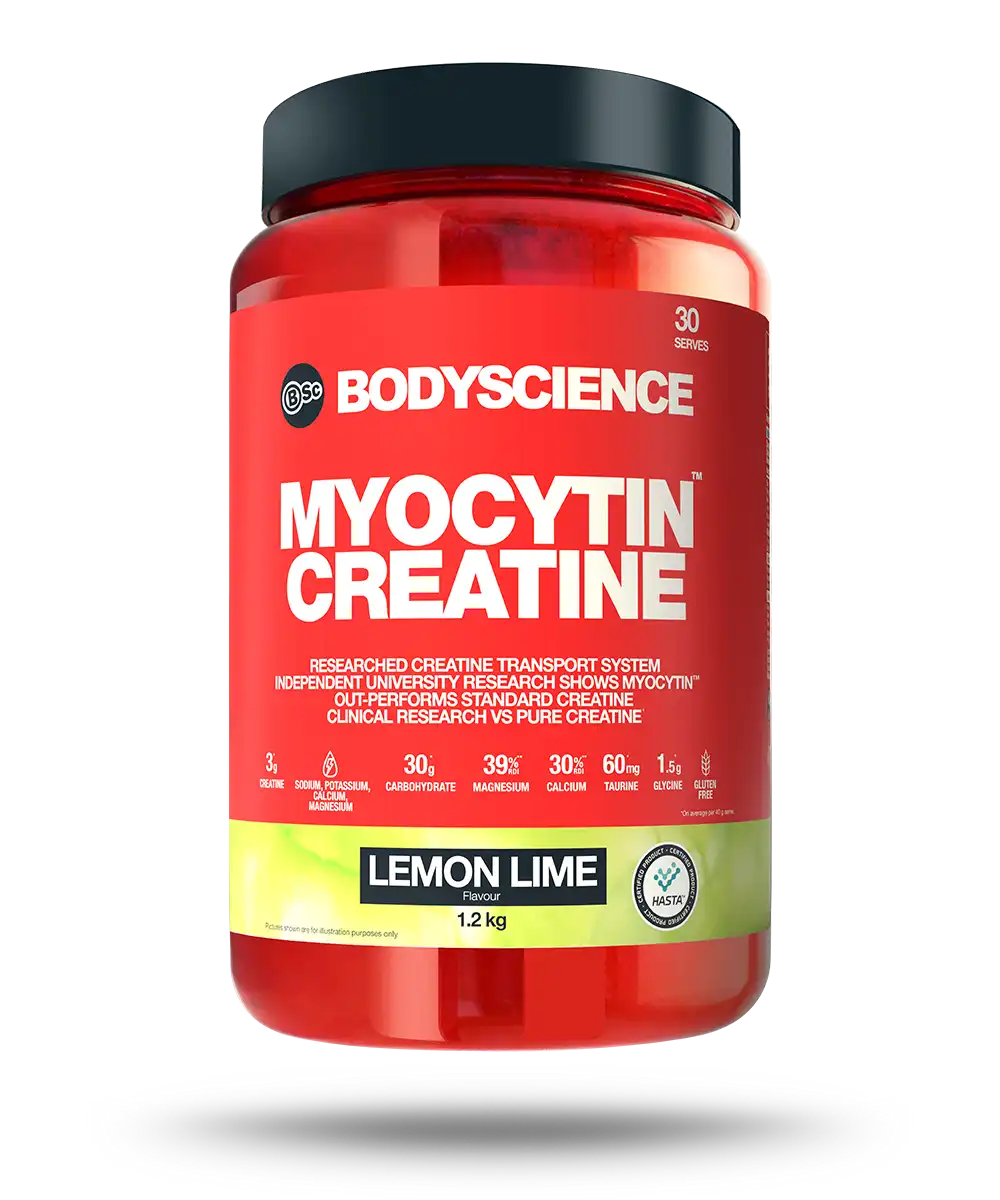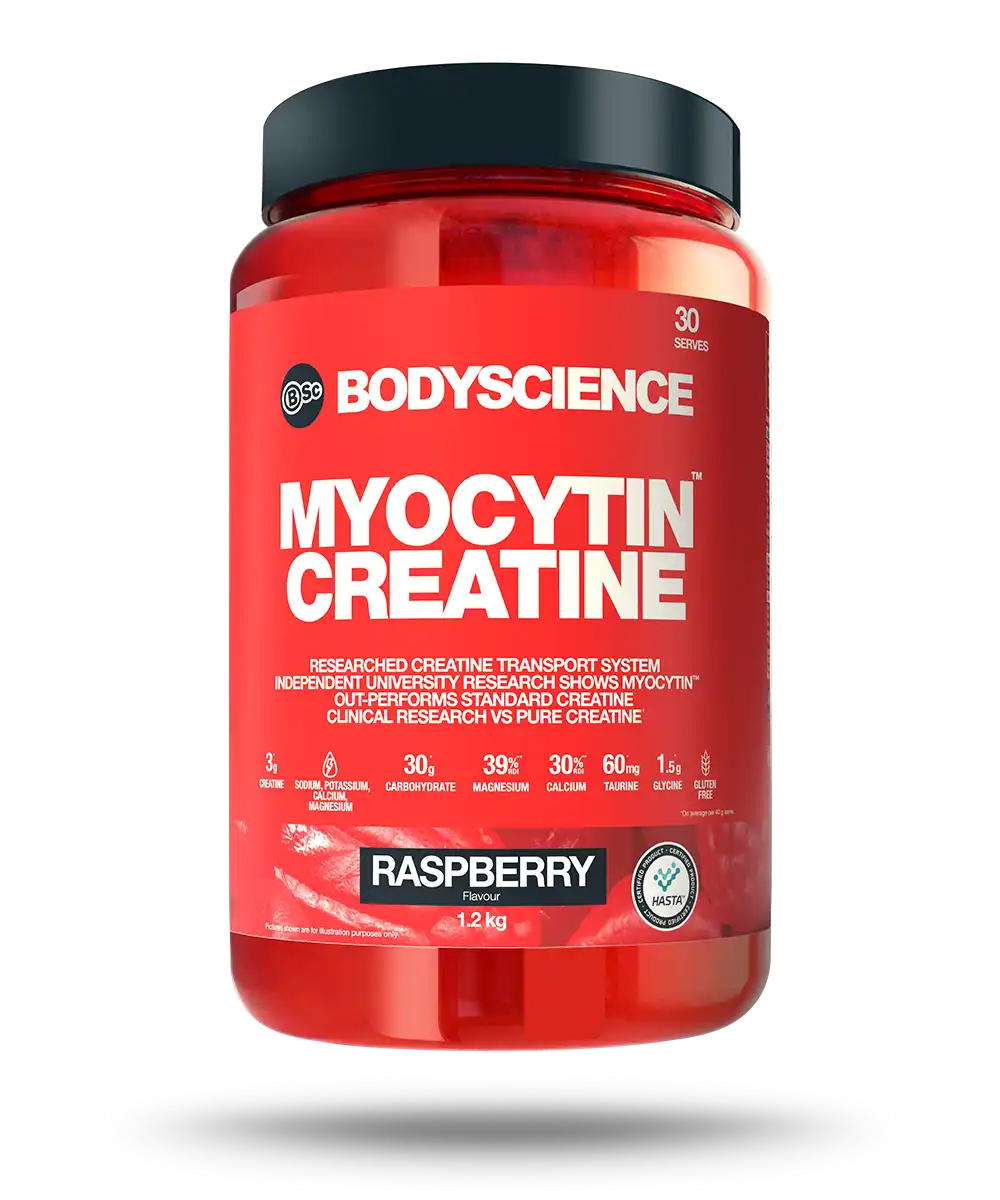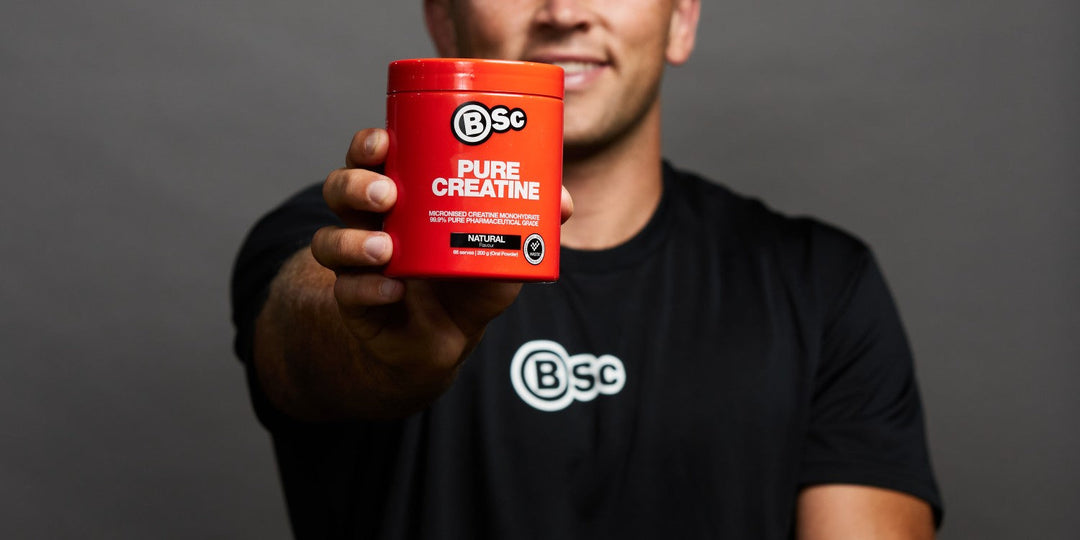Is Protein Good for Weight Loss?
There’s no denying it. Protein is one of the most important macronutrients for our bodies. Whether you’re an avid gym-goer, a professional athlete or you’re just starting out on your exercise journey, protein is an essential nutrient that helps to keep your body healthy and functioning properly.
If you’re just dipping your toe into the workout pool, you may have noticed that protein foods and powders are often discussed in relation to weight and muscle gain. Protein does indeed play an important role in building muscle and can be coupled with a calorie surplus to promote weight gain.
This may have you questioning, is protein good for weight loss? Given its rap and long-standing link with weight and muscle gain, it would seem that consuming protein is counterintuitive to losing weight.
Spoiler: the opposite is true.
Protein can help to promote weight loss in several different ways. We unpack them below.
Is Protein Good For Weight Loss?
Yep, protein is good for weight loss.
There are several ways in which protein interacts with our hormones, metabolism, and muscle mass to facilitate weight loss and naturally lower our caloric intake.
Let’s get straight into it and take a look at each of the ways in which protein promotes weight loss.
Protein Keeps You Fuller For Longer
Protein encourages weight loss because it keeps us fuller for longer.
This is largely due to the fact that protein changes the levels of weight-regulating hormones in our bodies.
Weight is actively regulated by the brain in the hypothalamus region. For the brain to determine when and how much to eat, it processes different information and signals.
There are certain hormones that send signals to the brain, that change in response to the foods we consume.
When we consume higher amounts of protein, this increases the levels of appetite-reducing hormones called GLP-1 and PYY. Protein also reduces levels of a hunger hormone called ghrelin.
This essentially means we feel fuller and less hungry throughout the day, which in turn means we consume fewer calories.
One small study found that after consuming a high-protein breakfast, older women ate 135 fewer calories later in the day, compared to the calories consumed after eating a low-protein breakfast or skipping the meal altogether.
Another study following nine women with obesity reported that whey protein reduced overall appetite in participants. Similarly, research found that participants who consumed a high protein shake pre-workout were less hungry post-workout than when given a lower protein shake.
One study even found that protein intake at 30% of calories prompted a decline in calorie intake by 441 calories a day — a significant drop-off.
These various studies indicate that protein decreases our hunger hormones, which means we automatically consume fewer calories without having to consciously control portion sizes or count calories.
Protein Supports a Healthy Metabolism
There are two key ways in which protein intake supports a healthy metabolism, and therefore weight loss.
Firstly, a high-protein diet consumed in conjunction with strength training can help you build muscle, and building muscle helps to boost your metabolism and energy production. When your metabolism increases, you burn calories faster which leads to weight loss.
Conversely, calorie restriction in conjunction with aerobic exercise may lead to weight loss, but it also leads to muscle loss, which prompts your metabolism to slow down. This means you would more easily gain weight when coming off the diet. In fact, this can amount to several hundred fewer calories burned each day.
Increasing your protein intake and combining this with a resistance training program can help to prevent muscle loss and prevent metabolic decline, which encourages weight loss.
A 13-week study following older adults with obesity found that those who consumed an extra 20g of protein weekly in the form of a protein shake gained 1.3kg more muscle mass than those who ate less protein.
A similar study found that people who consumed a calorie-restricted high-protein diet gained 1.1kg more muscle mass and lost 1.3kg more fat than those who ate a calorie-restricted low-protein diet.
So, the relationship between protein, building muscle mass, and a metabolic boost is clear.
Additionally, protein intake can boost your metabolism and therefore trigger weight loss due to the thermal effect.
After you eat, some of the calories you consume are used to digest and metabolise the food. Your body uses more energy to digest protein than it does for fat or carbs, meaning you burn more calories through digesting protein. This can deliver a small metabolic boost.
This process is known as the Thermal Effect of Food (TEF).
Protein’s thermal effect is around 20-30%, while carbs sit at 5-10% and fat only 0-3%.
Due to the high thermal effect of protein-based foods, high-protein intake boosts metabolism which promotes weight loss.
In fact, high protein intake has been shown to boost metabolism and increase the number of calories burned by 80 to 100 per day.
The effect is most pronounced when overfeeding. Overfeeding with a high protein diet has been shown to increase calories burned by a whopping 260 a day.
Protein May Assist With Belly Fat Loss
While spot reduction through exercise isn’t humanly possible, a high protein intake has been shown to assist with belly fat loss.
As we have been exploring, a high protein diet can effectively promote overall weight loss and a reduction in body fat, and this is particularly pronounced in the waist area, where many people hold excess fat.
In a three-month study, women with a high body fat percentage but who weren’t overweight were instructed to follow either a high or standard protein diet.
Those on the high protein diet lost an extra 1.4kg of body fat and an extra 2.2cm in waist circumference when compared with those who followed a standard protein diet. Women in the high protein group also retained more muscle mass than those on the standard protein diet.
Another study found similar results and reported that protein intake was inversely related to waist circumference.
A reduction in belly fat isn’t just an aesthetic bonus; it’s actually important for your health.
We have two types of fat in our bodies: subcutaneous fat, and visceral fat. Subcutaneous fat is the fat that sits under the skin — it’s the fat you can grab with your hand. Visceral fat, on the other hand, sits deeper in the stomach and builds up around our organs.
Visceral fat is extremely harmful to our health and can lead to heart disease, high cholesterol, and diabetes.
So, this loss of belly fat can be very beneficial for your health.
Protein Can Help You Maintain Your Weight
Protein’s effect on metabolism, appetite and lean muscle mass can also help to prevent weight regain further down the line.
A meta-analysis of several studies suggested that a higher protein intake of 25 to 30g per meal improved weight loss and overall weight management, though a full adherence to a high protein diet and lifestyle factors were also needed.
One study also suggested found that a high protein diet resulted in less short-term weight gain after significant amounts of weight loss.
In fact, another study echoed these findings and reported increasing protein intake by 15 -18% of calories reduced weight regain after major weight loss by 50%.

How Much Protein Should I Consume Each Day?
The Dietary Reference Intake (DRI) suggests a protein intake of between 50 and 75g a day if your daily calorie intake is 2000 calories.
However, this will vary depending on your own personal calorie intake and your goals. It’s generally recommended that you aim for 30% of protein from your calories for effective weight loss. To find your protein intake amount, multiply your overall calorie intake by 0.075. For example, 2300 (daily calorie intake) x 0.075 = 172.50g of protein a day.
You can also work out your intake needs based on your weight. You should aim to consume 1.5 to 2.2g of protein per kilogram of lean mass.
Which Protein Powder Is Best For Weight Loss?
While you can source a significant amount of protein from your diet (think beef, eggs, chickpeas, and dairy products), many people also choose to implement a protein powder supplement to help them reach their protein intake goals.
There are several different types of protein powder, and your choice will depend on your diet, dietary requirements, and taste preferences. Broadly, protein powders are categorised as either plant-based or animal-derived.
Casein Protein Powder
Casein is the best for weight loss. It is a slow-release protein so it helps you keep fuller for longer. This means casein is also digested slower, delaying the peak, but maintaining it for longer, which sustains the net protein levels for longer.
Casein and whey are the two types of proteins found in dairy milk. Casein is the larger component, weighing in at around 80%. It is a whole-body protein that contains all of the necessary amino acids.
Casein protein powder is made by drying out the liquid portion of milk and then distilling the fats away. One scoop (33 grams) contains 24 grams of pure protein, 1 gram of fat, and 3 grams of carbohydrates.

Whey Protein for Weight Loss
Whey protein is an animal-derived protein powder. Whey is one of the main protein components in milk. It’s separated from the other major protein in milk, casein, during the cheese-making process. The whey is then filtered, spray dried, and blended to become whey protein powder. It is considered a complete protein because it contains all nine essential amino acids that the body doesn’t produce on its own.
There are actually three types of whey protein.
- Whey protein concentrate has low levels of carbs and fat (with protein concentration levels anywhere between 30 and 90%)
- Whey protein isolate where the lactose and fat are extracted (with high protein concentrate levels at 90%)
- Whey protein hydrolysate is easier to digest and absorb than the other types because it undergoes a special pre-digestion process.
Whey protein powder has long been the most dominant powder on the market and is an effective, complete source of protein.
Vegan Protein Powders for Weight Loss
If you’re lactose intolerant or vegan, whey protein won’t be appropriate for you. However, there is a range of plant-based protein powders that you can incorporate into your diet instead. It’s important to note that some are better protein sources than others.
- Pea protein is made from yellow peas and is a complete protein, but the nine amino acids do not appear in equal amounts, which means you won’t be reaping the full benefits of a protein source.
- Hemp protein is made from ground hemp seeds and is a complete protein, but it’s less concentrated overall than pea or soy protein.
- Brown rice protein is created when the protein in the brown rice is separated from the carbohydrates. However, it is not a complete protein as it doesn’t contain lysine.
- Soy protein is made from soybean flakes that are washed, and then dehydrated. It is a complete protein and lactose-free option that is quickly absorbed by the body.
As you can see, some of the above plant proteins are technically complete — as they do contain all nine amino acids — but the amino acids don’t always appear in equal amounts. This means your body won’t be taking in all of the protein richness necessary to effectively build and repair your cells and tissue.
This is why the most popular source of plant-based protein is a vegan protein powder blend.
- Vegan protein powder blends contain multiple plant protein ingredients. This helps to ensure all amino acids are included at equal levels. Protein blends also contain enzymes that help the body better digest the product and synthesize the protein for muscle growth.
Trying a Blend
Our Lean 5 Protein has whey and casein so you have hunger control and fast muscle support Hydroxyburn Lean 5 Low Carb Protein is the perfect blend of both fast and slow-release proteins needed to provide energy for optimum performance, and muscle recovery while providing the necessary fuel to reduce appetite. This product has taken into account all aspects of using a high-quality protein powder thoroughly, giving you everything you need without any added artificial ingredients. Shop the Hydroxyburn Lean 5 Low Carb Protein.
Upping Your Protein
So, we know that protein is good for weight loss.
It helps to keep you fuller for longer (therefore decreasing the number of calories consumed), boosts your metabolism by promoting muscle growth through the Thermal Effect of Food, assists with visceral fat loss, and can help you keep the weight off long-term. Plant-based protein powders or whey protein powders can help to boost your protein intake when consumed in conjunction with a healthy and balanced diet.
If protein powders aren’t your thing, a high-protein snack might be a better option for you. Our range of Body Science protein powders, protein bars, protein mousses, and protein snacks are designed to deliver that extra (super tasty) protein boost throughout your day.
Have a question for us? You can ask our PT! Send in your questions about all things protein and weight loss, and we’ll point you in the right direction.







